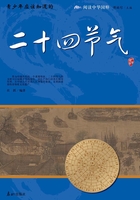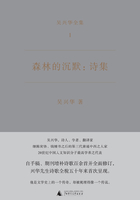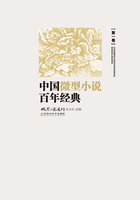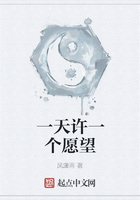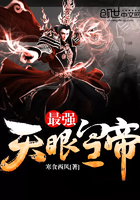So that, on the whole (and even men of science admit this), up to the present time, all these remarkable discoveries and products of science and art have certainly not ameliorated the condition of the workingman, if, indeed, they have not made it worse. So that, if we set against the question as to the reality of the progress attained by the arts and sciences, not our own rapture, but that standard upon the basis of which the division of labor is defended,--the good of the laboring man,--we shall see that we have no firm foundations for that self-satisfaction in which we are so fond of indulging.
The peasant travels on the railway, the woman buys calico, in the isba (cottage) there will be a lamp instead of a pine-knot, and the peasant will light his pipe with a match,--this is convenient; but what right have I to say that the railway and the factory have proved advantageous to the people?
If the peasant rides on the railway, and buys calico, a lamp, and matches, it is only because it is impossible to forbid the peasant's buying them; but surely we are all aware that the construction of railways and factories has never been carried out for the benefit of the lower classes: so why should a casual convenience which the workingman enjoys lead to a proof of the utility of all these institutions for the people?
There is something useful in every injurious thing. After a conflagration, one can warm one's self, and light one's pipe with a firebrand; but why declare that the conflagration is beneficial?
Men of art and science might say that their pursuits are beneficial to the people, only when men of art and science have assigned to themselves the object of serving the people, as they now assign themselves the object of serving the authorities and the capitalists. We might say this if men of art and science had taken as their aim the needs of the people; but there are none such. All scientists are busy with their priestly avocations, out of which proceed investigations into protoplasm, the spectral analyses of stars, and so on. But science has never once thought of what axe or what hatchet is the most profitable to chop with, what saw is the most handy, what is the best way to mix bread, from what flour, how to set it, how to build and heat an oven, what food and drink, and what utensils, are the most convenient and advantageous under certain conditions, what mushrooms may be eaten, how to propagate them, and how to prepare them in the most suitable manner. And yet all this is the province of science.
I am aware, that, according to its own definition, science ought to be useless, i.e., science for the sake of science; but surely this is an obvious evasion. The province of science is to serve the people. We have invented telegraphs, telephones, phonographs; but what advances have we effected in the life, in the labor, of the people? We have reckoned up two millions of beetles! And we have not tamed a single animal since biblical times, when all our animals were already domesticated; but the reindeer, the stag, the partridge, the heath-cock, all remain wild.
Our botanists have discovered the cell, and in the cell protoplasm, and in that protoplasm still something more, and in that atom yet another thing. It is evident that these occupations will not end for a long time to come, because it is obvious that there can be no end to them, and therefore the scientist has no time to devote to those things which are necessary to the people. And therefore, again, from the time of Egyptian and Hebrew antiquity, when wheat and lentils had already been cultivated, down to our own times, not a single plant has been added to the food of the people, with the exception of the potato, and that was not obtained by science.
Torpedoes have been invented, and apparatus for taxation, and so forth. But the spinning-whined, the woman's weaving-loom, the plough, the hatchet, the chain, the rake, the bucket, the well- sweep, are exactly the same as they were in the days of Rurik; and if there has been any change, then that change has not been effected by scientific people.
And it is the same with the arts. We have elevated a lot of people to the rank of great writers; we have picked these writers to pieces, and have written mountains of criticism, and criticism on the critics, and criticism on the critics of the critics. And we have collected picture-galleries, and have studied different schools of art in detail; and we have so many symphonies and orchestras and operas, that it is becoming difficult even for us to listen to them.
But what have we added to the popular bylini [the epic songs], legends, tales, songs? What music, what pictures, have we given to the people?
On the Nikolskaya books are manufactured for the people, and harmonicas in Tula; and in neither have we taken any part. The falsity of the whole direction of our arts and sciences is more striking and more apparent in precisely those very branches, which, it would seem, should, from their very nature, be of use to the people, and which, in consequence of their false attitude, seem rather injurious than useful. The technologist, the physician, the teacher, the artist, the author, should, in virtue of their very callings, it would seem, serve the people. And, what then? Under the present regime, they can do nothing but harm to the people.






